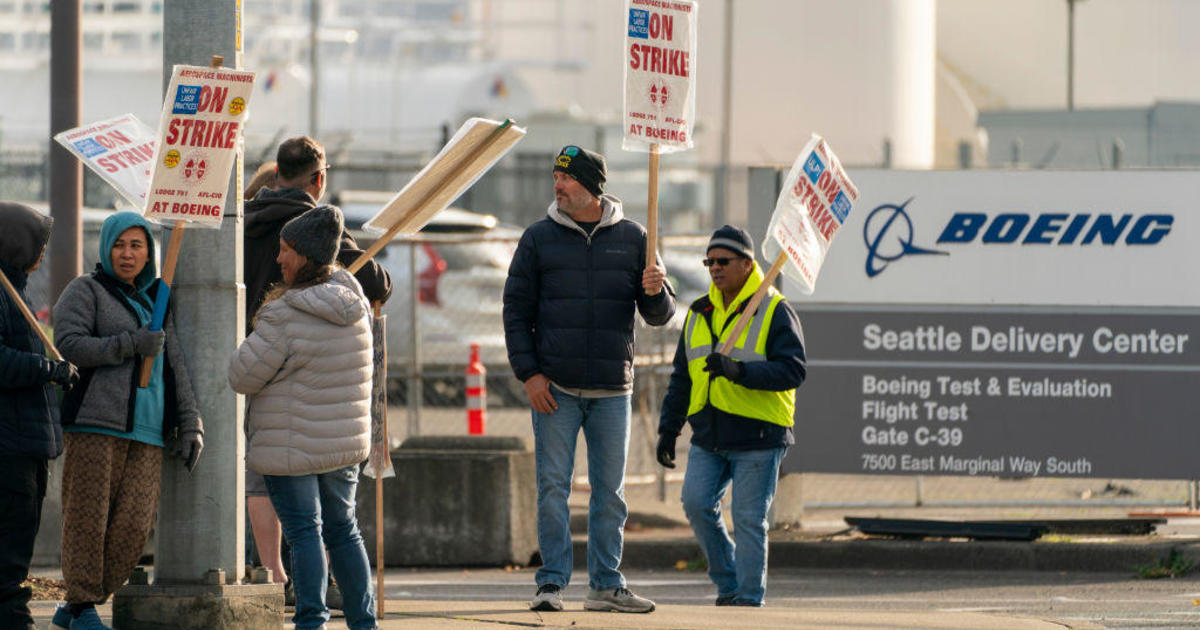Boeing’s 33,000 unionized machinists on Wednesday voted to approve the plane manufacturer’s latest contract offer, ending a seven-week strike that had halted production of most of the company’s passenger planes.
The union said 59% voted to accept the contract. Members have the option of returning to work as soon as Wednesday, but must be back at work by Tuesday, November 12, the union said in a statement.
Union leaders had strongly urged members to ratify the latest proposal, which would boost wages by 38% over the four-year life of the contract, up from a proposed increase of 35% that members of the International Association of Machinists and Aerospace Workers (IAM) had rejected last month.
The revised deal also provides a $12,000 cash bonus to hourly workers and increased contributions to retirement savings plans. The enhanced offer doesn’t address a key sticking point in the contentious talks — restoration of pensions — but Boeing would raise its contributions to employee 401K plans.
Average annual pay for machinists, now $75,608, would climb to $119,309 in four years under the current offer, Boeing said.
The vote came after IAM members in September and October rejected lesser offers by the Seattle-based aerospace giant.
“In every negotiation and strike, there is a point where we have extracted everything we can in bargaining and by withholding our labor,” the International Association of Machinists and Aerospace Workers stated last week in backing Boeing’s revised offer. “We are at that point now and risk a regressive or lesser offer in the future.”
Acting U.S. Labor Secretary Julie Su has played an active role in the negotiations, after recently helping to end a days-long walkout that briefly closed East and Gulf Coast ports.
The Boeing strike that began on Sept. 13 marked the latest setback for the manufacturing giant, which has been the focus of multiple federal probes after a door plug blew off a 737 Max plane during an Alaska Airlines flight in January. The incident revived concerns about the safety of the aircraft after two crashed within five months in 2018 and 2019, killing 346 people.
Boeing in July agreed to plead guilty to conspiracy to commit fraud for deceiving regulators who approved the 737 Max.
During the strike, Boeing was unable to produce any new 737 aircraft, which are made at the company’s assembly plants in the Seattle area. One major Boeing jet, the 787 Dreamliner, is manufactured at a nonunion factory in South Carolina.
The company last month reported a third-quarter loss of $6.1 billion.
contributed to this report.

